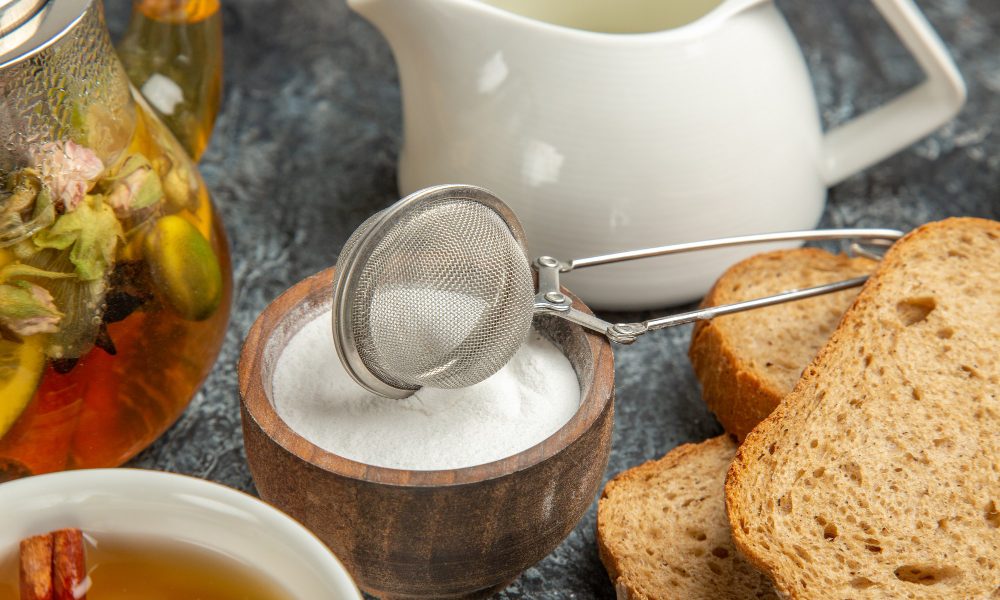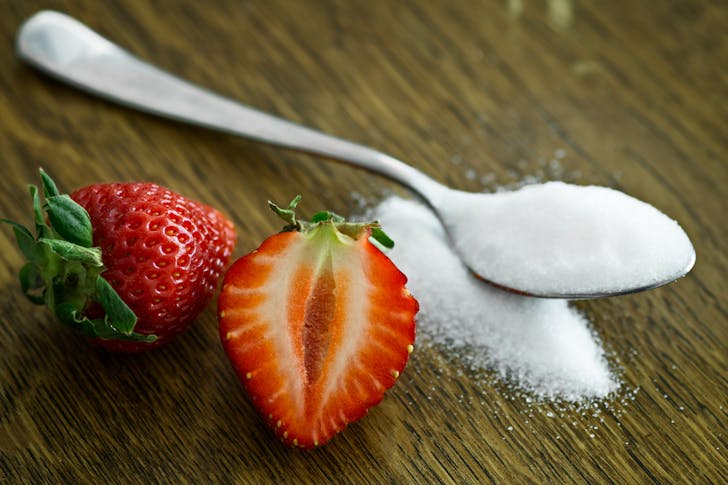
Why Excess Sugar Is Bad for Your Health

Sugar tastes good, but it is not your friend. You might think of it as harmless fun in a can of soda or a quick energy boost in a candy bar. But too much of it messes with your body in more ways than one. It doesn’t just stick to your waistline.
It hits your organs, your brain, and even your skin. The good news? You can fix it, and it is easier than you think.
Your Liver Isn’t Built for This
Essentially, your liver handles sugar the same way it deals with alcohol. It processes it, stores it, and when there is too much, it turns into fat. The worst kind of sugar for your liver is fructose, found in sodas, snacks, and even “healthy” juices.
Over time, that buildup can lead to non-alcoholic fatty liver disease. That used to be rare. Now, it is everywhere.

Mali / Pexels / If your liver gets overworked, it slows down and stores more fat. That messes with your metabolism and can leave you tired, inflamed, and at higher risk for serious illness.
And you might not even know it is happening until things get bad.
Sugar Tells Your Brain to Eat More
Sugar flips your hunger switch. It turns off the signal that tells your brain, “I’m full.” This is especially true with fructose. It doesn’t block the hunger hormone ghrelin, and it doesn’t boost leptin, the hormone that says stop eating.
That makes it super easy to overeat without realizing it.
This is why sugary drinks are a trap. Your body doesn’t register the calories the same way it does with solid food. You can drink 300 calories of soda and still feel hungry five minutes later.
It Breaks Your Metabolism
A diet packed with sugar sends your body into chaos. It raises your blood sugar, pushes your cholesterol out of balance, and packs on visceral fat. These changes are the building blocks of metabolic syndrome, a warning sign that your body’s systems are breaking down.
When this happens, your risk for heart disease, stroke, and type 2 diabetes shoots up. It is not just about looking unhealthy. Inside, your body is running on fumes, trying to keep up with the sugar overload.
Plus, your pancreas works hard to control your blood sugar by releasing insulin. When you eat too much sugar, it goes into overdrive. At first, it can keep up. But over time, your cells stop responding to insulin the way they should. This is called insulin resistance.
Inflammation Becomes a Daily Thing
Too much sugar doesn’t just affect one area of your body. It creates low-grade inflammation everywhere. You might not feel it, but it is there, slowly damaging cells and tissues, raising your risk for heart problems and even autoimmune conditions.
This kind of inflammation doesn’t come from an injury or infection. It is silent and constant, driven by what you eat. Sugar acts like fuel for the fire, keeping it burning day after day.
How to Stop It?
Start with your drinks. Sodas, sweet teas, and juices are the worst offenders. Cutting them out can slash your sugar intake by half or more. Reach for water, black coffee, or seltzer instead. Your taste buds will catch up sooner than you think.

Freepik / Check the labels. Sugar hides in sauces, dressings, breads, and even foods labeled “healthy” or “low-fat.”
Look for all its sneaky names like corn syrup, cane sugar, and anything ending in “-ose.” The less you see of those, the better.
Eat food that doesn’t come in a box. Whole foods like veggies, nuts, seeds, lean meats, and whole grains keep your blood sugar steady. They digest slowly and help you feel full longer.
More in Body
-
`
Dwayne Johnson Shocks Fans With Dramatic Weight Loss Transformation
Dwayne “The Rock” Johnson stunned the crowd at the 2025 Venice Film Festival with a slimmer look that set social media...
September 20, 2025 -
`
Dwayne ‘The Rock’ Johnson Stuns Fans With Slimmed-Down MMA Fighter Look
Dwayne ‘The Rock’ Johnson isn’t just flexing muscles anymore. In “The Smashing Machine,” Dwayne Johnson strips down the bulk, sheds his...
September 13, 2025 -
`
Here’s How Fat-Blocking Green Tea Microbeads May Aid Weight Loss
Scientists are exploring an innovative way to reduce fat absorption in the body—tiny edible beads made with green tea, vitamin E,...
September 12, 2025 -
`
Why the Heart Is Slightly to the Left and Not Perfectly Centered
The heart is one of the most vital organs in the body, yet its placement often raises questions. Many assume it...
August 16, 2025 -
`
Ozzy Osbourne’s Most Shocking and Beloved Pop Culture Moments
Few figures in rock history have carved out a legacy as vivid and unpredictable as Ozzy Osbourne. Beyond his groundbreaking work...
August 10, 2025 -
`
Are Mono Diets Worth It – or Just a Dangerous Trend?
As summer brings on the pressure to slim down fast, the internet lights up with diet trends promising instant results. One...
August 3, 2025 -
`
Why Motivation Is Essential for Sustainable Fitness Success
Motivation isn’t something that shows up when it’s convenient—it’s something that needs to be built, shaped, and sustained. Many people struggling...
July 27, 2025 -
`
The Mystery of Human Body Parts That Science Still Can’t Solve
The human body is a patchwork of evolutionary choices, quirks, and mysteries. From skeletal structure to the tiniest gland, everything tells...
July 18, 2025 -
`
Why a Mediterranean Diet and Exercise Slow Bone Loss in Seniors
Bone health isn’t just a concern for the elderly—it’s something that starts to matter the moment the body begins to lose...
July 12, 2025










You must be logged in to post a comment Login